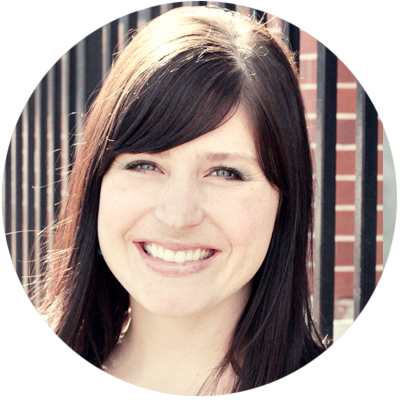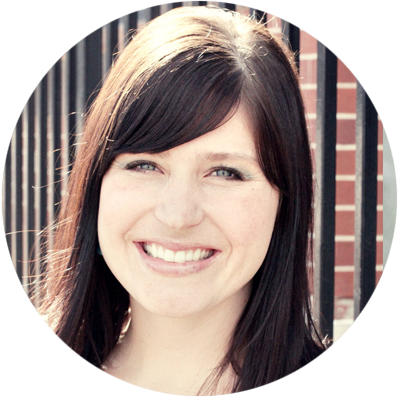I grew up in a religious community that did not believe in Jesus but lived by the law of the Old Testament. Despite not knowing Jesus, I liked the idea of a God who was in control. I learned about him only through Old Testament stories. When I was seven, I read about Shadrach, Meshach, and Abednego, because my memory verse was Daniel 3:17–18. My mom explained that these men were willing to obey God no matter what. Even if he didn’t save them, they wouldn’t give up. I found that story thrilling. I memorized my verse and stood on the coffee table screaming it out at the top of my lungs, holding my fist in the air. After meeting Jesus in Junior High, my whole life changed. I immediately started sharing whatever I learned about Jesus with my friends. I had no evangelism training, it just felt instinctual. Looking back, I’m astounded at how many people I influenced during that time.
Later in high school, walking down the hallway, a teacher’s aide stopped me and said, “You have charisma. I see the way you interact with others, the energy you carry. Whatever you want to do in life, you can set yourself to it and it will happen” I felt awkward, but flattered. At home, I looked up the word charisma: “a compelling charm that inspires devotion in others.” It seemed like this stranger had more insight than I did into who I was.
In college, I prepared for a career in music education. I earned a bachelor’s and master’s degree in music, and I simultaneously volunteered in ministry, leading Young Life, working with refugees, overseeing Sunday teams and discipleship processes, and serving in kids ministry and worship. I turned down any summer programs and weekend performances that got in the way of ministry opportunities. By the end of my master’s degree, I sensed God talking to me about a life in ministry instead of music.
As I considered a ministry career, I never considered being a pastor. Full-time ministry was my husband’s dream, and I had always been happy to support him in that process. I had grown up in a complementarian home. My idea of men and women was like the quote from My Big Fat Greek Wedding: “The man may be the head of the household, but the woman is the neck, and she can turn the head whichever way she pleases.” I knew women had strength and leadership, but I thought it had to be used in the background. I didn’t believe women could be pastors, but I loved my ministry role as a part-time administrator for the church, influencing our systems, outreach, and staff culture.
Eventually I was hired full time as the Executive Assistant to the Senior Pastor at the Mile High Vineyard. My ideas of women in the church were immediately challenged. I was encouraged to learn about the theology of women in ministry, but I was afraid to explore the topic. I didn’t want to be a feminist! I had seen many women assert themselves in leadership roles in spite of lack of character and leadership skills. It was very off-putting.
As I took the time to truly understand what the scriptures said about women, my mindset changed. I learned that women could indeed lead churches. It helped that my husband had more egalitarian views than I had realized, and he was excited to see me explore my gifting. I think he was relieved to have his passionate and intense wife finally focus her energy on herself instead of channeling it into his ministry experience.
When our church officially made me a pastor, I told no one. How could I tell my family and my childhood friends, people who had never known female church leaders, that I was a pastor? Would people see me as a dominating woman trying to usurp her husband? My personality and gifts are the loud, upfront kind. My husband’s gifts are the behind-the-scenes, one-on-one kind. How would my new leadership role play out in our home? Even though my external framework for women in ministry changed, I struggled internally to accept my new role. Sometimes I saw myself as a little girl wearing her dad’s oversized clothes.
Though I had success outwardly, I continued to struggle with my limiting internal dialogue: “Maybe the church can’t grow because it has a woman pastor. Maybe people won’t listen to me because I’m a woman.” It’s easy to make that kind of meaning because of the common refrain that women are too emotional, can’t be rational, and have less authority than men. The truth is that I always had good traction in leadership; when I put my hand to something, it grew and was healthy. I could do things in leadership that some men in our church couldn’t do: engage in hard conversations, enter into crisis with people, lead people to Jesus, and give direction and vision.
As I took an honest look at my abilities, I began to hear God speak about my calling. Remember the fiery furnace story? When I recalled seven-year-old Becca, reciting Daniel 3 with her fist in the air, I clearly heard the Lord say, “I called you even then to be someone who would obey.” The beauty of that story is that Jesus is the person in the fire with Shadrach, Meshach, and Abednego. Jesus was with me as a young girl, calling me to him even before I knew him. I obeyed God most of my life by doing the work he asked me to, but now I had to obey in my heart by accepting a new identity and stepping into the authority he gave me.
As leaders, male or female, we are often tempted to hide who we are and ignore our calling. I had been comfortable supporting my husband’s ministry and supporting the church as an administrator, but God equipped and called me to lead. I chose to obey. Now the temptation is to puff up pridefully and try to prove that I can lead. Neither puffing up nor shrinking back is living into the calling God has placed on my life. Leaders always face external challenges, but the real battle is with the untrue stories we tell ourselves: I am not good enough, someone will see how incapable I am, I haven’t been trained properly for this moment. But when I look at how God made me, I hear him call me to one simple thing—obedience to him alone, even if I think the fire might consume me.
Explore your calling.

Becca Knudsen serves as the Executive Pastor for the Mile High Vineyard. She oversees the logistical and tactical needs of the Mile High Vineyard. Becca has helped to establish more structure and systems in the church to allow for church growth and excellence. In 2014 Becca and her husband Chris planted the Westminster Vineyard where Becca served as pastor for three years. In 2017 they transitioned the church to new leaders so that Becca could focus again on her full-time role as Executive Pastor for all of the Mile High Vineyard churches. Becca and her husband Chris, whom she met in middle school, were married in 2004. They have two children, Eloise and Soren.





